'When armies start attacking with clubs and batons, then at some point this can take an escalatory spiral and spin out of control.'
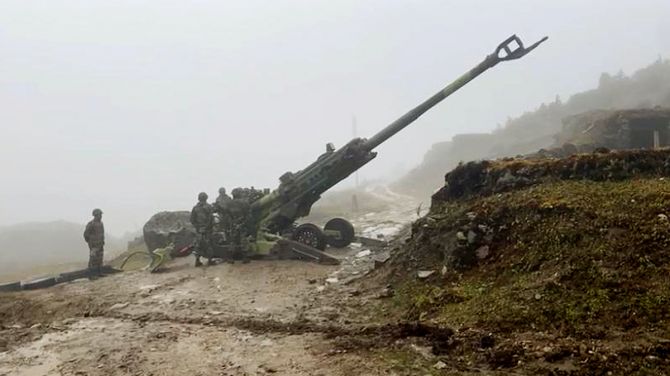
"Our government needs to find a modus operandi and deal with these transgressions in a structural manner rather than episodically... We have not thought out a strategy to put pressure on the Chinese," Congress MP Manish Tewari, who writes extensively on defence and strategic issues, tells Rediff.com Senior Contributor Rashme Sehgal after the December 9, 2022 clash between Indian and Chinese troops in Arunachal Pradesh.
You moved an adjournment motion in Parliament demanding a comprehensive discussion on the India-China faceoff.
I have moved eight adjournment motions in Parliament from December 7, the day Parliament convened for the winter session, in order to have a discussion on the issue of Chinese transgressions.
I even invoked Rule 193 for a discussion and gave notice for a calling attention on the whole issue since 2020.
But the government reply is that rules do not permit this and so a discussion has not been allowed.
We have faced frequent transgressions from then (April 2020), but the government has been diffident and stonewalling any discussion apart from making the odd statement of what is happening on the border.
By not holding a discussion, do you believe the government is trying to withhold information?
As I have said in the past, no one wants to finger point to the government, but the security of the nation is a matter of concern for us all.
It is difficult to comprehend why Parliament has not been taken into confidence and why we are witnessing this information squeeze.
Is it because we are riding two boats at the same time -- China remains one of our major trading partners and yet India is at the receiving end of incursions by Chinese troops in eastern Ladakh and now in Arunachal Pradesh?
The irony is that on one hand, India's trade has increased with China and on the other hand, the situation on the border continues to be very taut.
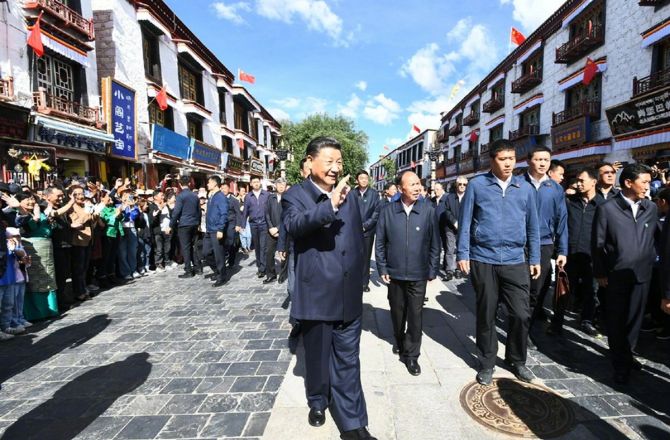
Can Chinese aggressive behaviour be linked to Xi Jinping's rise to power since 2013?
Chinese transgressions have indeed stepped up from 2013.
There has been the Depsang face-off in 2013 followed by Doklam and then Galwan in 2020.
We have two informal summits plus our prime minister has met Xi Jinping at international fora.
But despite all these interactions, do we have a read of the Chinese intentions?
Ever since Xi Jinping came to power, we have seen an exacerbation of tensions whether against Taiwan or in the South China Sea.
China was involved with 19 land disputes with different countries. It has settled most of them except for India and Bhutan.
I am not finger pointing, but that is the situation.
It speaks for a lack of confidence on the part of the government that it does not repose faith in Parliament.
In 1994, Parliament passed a unanimous resolution that PoK was an integral part of India.
The present government must not forget that on issues of national security, Parliament has risen to the occasion and spoken in one voice.
Do you think China has become more aggressive post the Chinese Communist party's national congress in October?
There has been no fundamental shift. What was different is the manner in which they showcased PLA soldiers involved in the Galwan conflict. That message was very portentous.
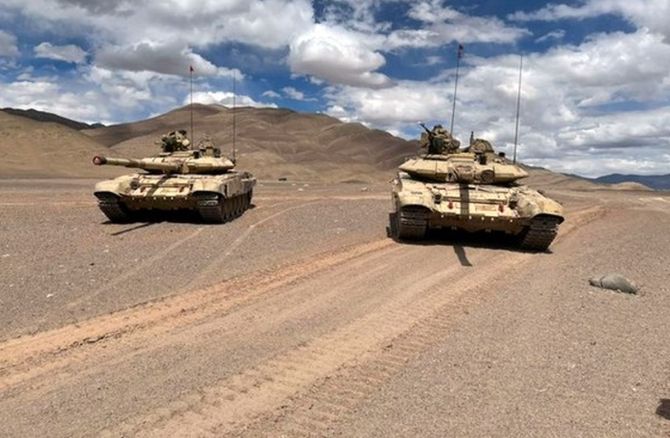
Can China afford to be so aggressive because being our second largest trading partner it is aware of the kind of pressure business groups can put on our government?
I don't think these two things are inter-related. Trade relations have a dynamic of their own.
Our government needs to find a modus operandi and deal with these transgressions in a structural manner rather than episodically.
We are both nuclear armed nations. We need to understand that when armies start attacking with clubs and batons, then at some point this can take an escalatory spiral and spin out of control.
Several strategists warn that China understands only the language of strength and believes it can get away with this because it is more powerful.
This is a very amateurish understanding of the existing situation.
Both China and India did not share a border till such time as China took over Tibet.
China remains our biggest neighbour, but we do not have sufficient scholarship and insight that allows us to understand it in all its manifestations.
Which is why need to have a broader discussion (in Parliament) on both the long term and short term steps we need to take.
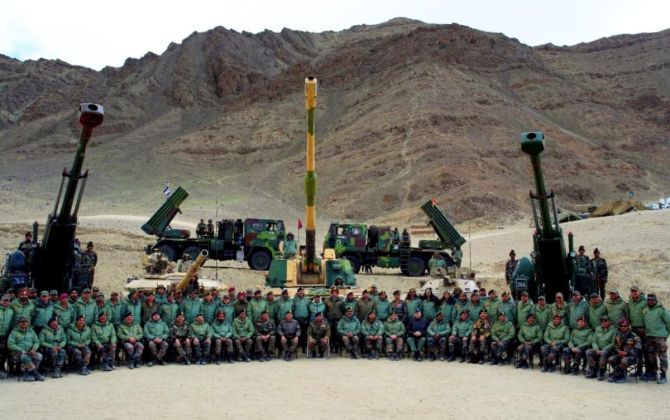
Is this happening because China sees India as the only Asian power that can challenge its hegemony?
China obviously has a march over us. They opened up their nation in 1979 whereas we did so a decade later.
They have spent a great deal of money on their armed forces and have built up six integrated theatre commands.
By contrast, our armed forces are battle hardened.
Indian forces have several decades of experience in high altitude warfare apart from (military experience gained) in the Maldives, Sri Lanka, Kargil, and in counter insurgency operations whereas the last war China fought was in Vietnam in 1979.
This is why we need to have a very candid discussion on this matter instead of trying to hush it down.
Given the spread of the recent unrest within China, is the clash in Arunachal Pradesh a diversionary tactic to divert the attention of the Chinese people?
Not really. When Covid was raging across the world and the Chinese were accused of not being transparent on its origins, they moved their forces across Line of Actual Control into Depsang.
We have not thought out a strategy to put pressure on the Chinese.
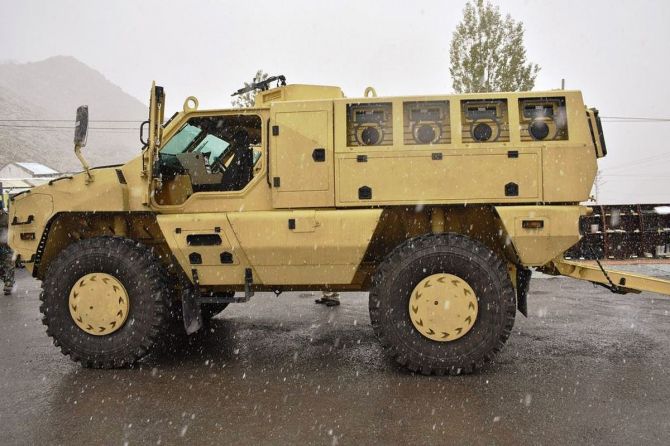
The last two years have seen a huge build up of infrastructure -- roads, air strips, villages -- by the Chinese.
The build up on the Line of Actual Control is directed at us and nobody else. We should be very clear about their intentions.
We appear to be in reactive mode towards China. Why are we afraid to take the initiative?
The power differential between us remains enormous.
To cite one example, to stop their dependence on Taiwan and the US, look at the billions of dollars they are pouring into augmenting their semi conductor capacity.
The Chinese system is a continuum whereas we remain weak on that score.
Without making a value judgement on the PM, we cannot afford prevarication towards China.
We must develop greater unanimity when it comes to China.
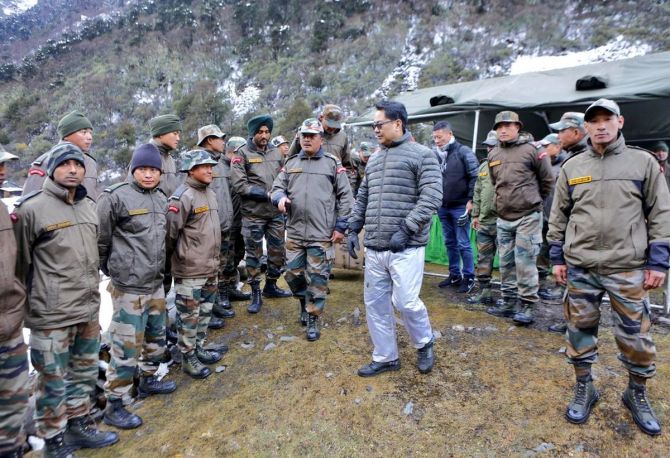
Even the Parliamentary Standing Committee on Defence has not discussed these frequent Chinese transgression.
The Standing Committee on Defence in Parliament could have held an in camera session in China if they had pushed hard enough.
They could have got some official briefing on what the government position on China was.
Do you believe the government will continue to underplay the Chinese transgressions?
The India-China dynamic is hardball at play. In realpolitik, you do not run the gauntlet of hide-bound predispositions.
Flexibility of thought and freedom to manoeuvre must be the sine qua non that should define a nation's strategy and tactics.
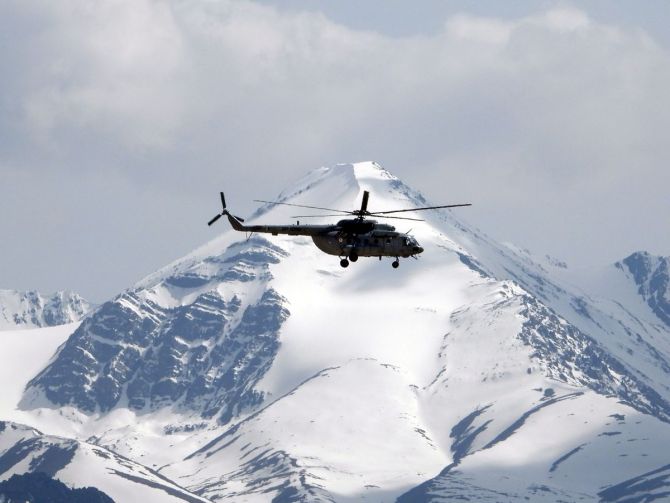
Given China's aggressive behaviour, what kind of political solution do you and your Congress party envisage to settle this dispute?
The government is unwilling to discuss this issue with us.
Some political leaders have warned that China could well be preparing for a full scale war, but before we try and craft a solution, we should have a clear-eyed read on Chinese intentions and even that is missing in the case of the present dispensation.
Feature Presentation: Aslam Hunani/Rediff.com









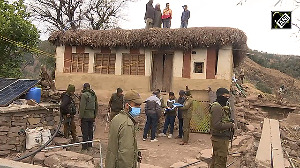

 © 2025
© 2025